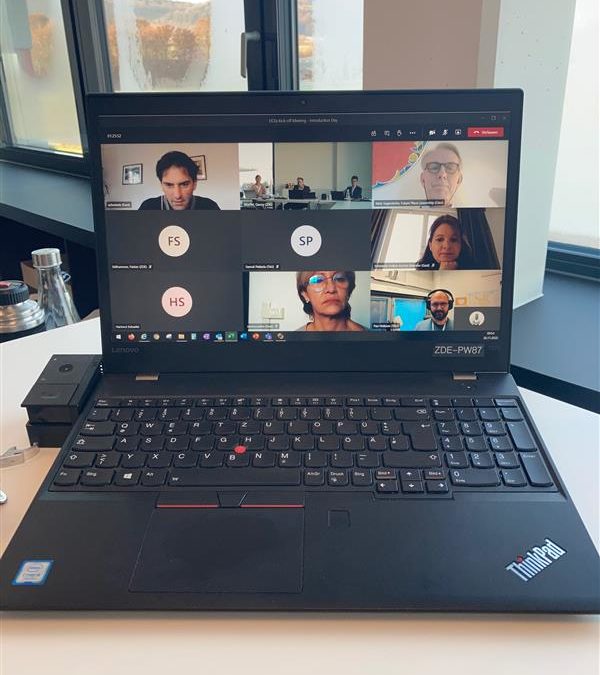Zentrum für Digitale Entwicklung (ZDE) takes off on a European level. At the beginning of November, the National Agency Education for Europe at the German Federal Institute for Vocational Education and Training (NABiBB) positively approved the submitted application “Digital City Experts – making administrative staff drivers for the digital era” which will now be funded for three years with €362.000 by the ERASMUS+-program of the European Union.
“The funding is an important milestone for us in the development of our Academy, as it will enable us to discuss our educational approaches in the field of Smart Cities with experts from five European countries and to further develop them for our customers,” explains Georg Würffel, responsible for the development of ZDE Academy. In addition to ZDE as lead partner, five other partners are involved in the project: The place branding agency “Future Place Leadership” from Sweden, Tampere University from Finland, the Association for the Promotion of Digital Culture – Schmiede Hallein from Austria, the vocational training center IAL Marche from Italy and the IHK-PG project company of Eastern Brandenburg from Germany.
The aim of the project is to develop a European “Digital City Expert” qualification. This is intended to enable medium-sized and small cities in Europe in particular to learn from each other and exchange information in a community. The approach is relatively new, despite all European digitization efforts. Communication in the field of smart cities tends to take place between metropolitan regions and at the respective national levels.
The project kick-off already took place from Nov. 26 to 27 in Westhausen, albeit only virtually. The aim was to coordinate the upcoming milestones. ZDE Managing Director Wolfgang Weiß is pleased about the funding and the strategic partnership with northern and southern European partners: “This cooperation already allows us to measure where we stand with our smart city projects in the European context and how we can develop them further with new approaches.” “In the process,” says Weiß, “there are a number of things in the pipeline, such as a special bootcamp format for cities and a “Smart City MOOC.” This refers to a freely accessible online course that provides interested parties with attractive content on digital urban development. “We are looking forward to an exciting three years with our partners,” says Wolfgang Weiß.

Recent Comments